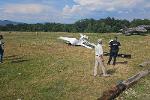John Ashcroft, former president of IOPS (The International Organisation of Pension Supervisors) and now independent consultant for international pension institutions, speaks in an interview for Wall-Street about the paramount importance of increasing the level of contributions for the private second pillar pensions as well as other priorities designed to improve the private pension provision and reform in Romania.
Wall-Street: How could the lack of maturity of the Romanian financial system and the poor financial education of the public affect the private pensions system here?
John Ashcroft: The provision of private pensions in countries with relatively immature financial markets and systems, such as Romania, will always be more problematic than elsewhere, as the risks from investing in domestic markets are greater and more intense (and hence costly) regulation and supervision is appropriate.
There is a difficult balance to be struck in public policy between allowing pension institutions to invest more abroad, where deeper and more mature markets can be accessed, and using private pension capital as a means to build and strengthen domestic markets. Unless public policymakers are willing to allow extensive use of a wide range of domestic foreign markets the long term returns to the beneficiaries of private pensions are likely to be constrained.
Poor financial education may also be a constraint (and indeed is an issue for all pension systems, not just the Romanian system). Policyholders (plan members) throughout the world are notoriously poor at understanding risk, and often unduly risk averse.
There is an imperative on pension policymakers and providers to look after their longer term interests and achieve a better balance of risk and reward than the members might choose left to their own devices. Otherwise investment choices cou






